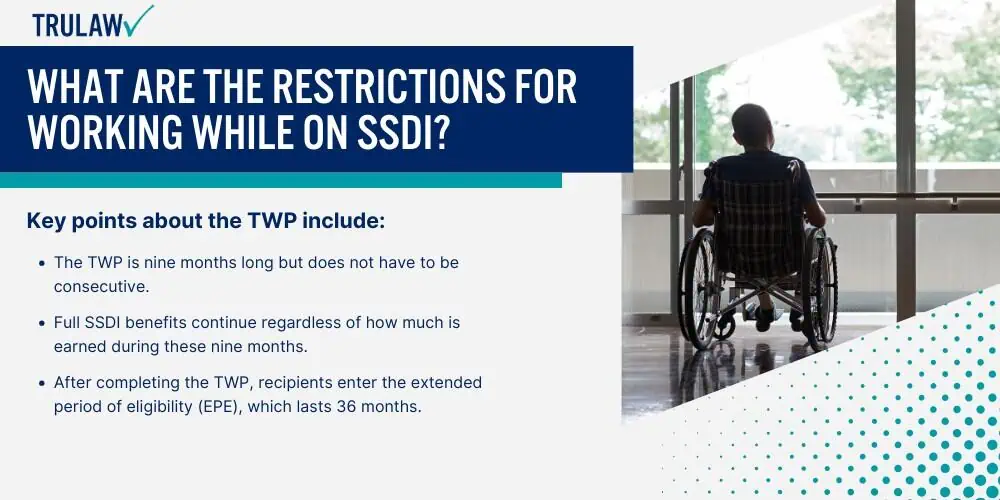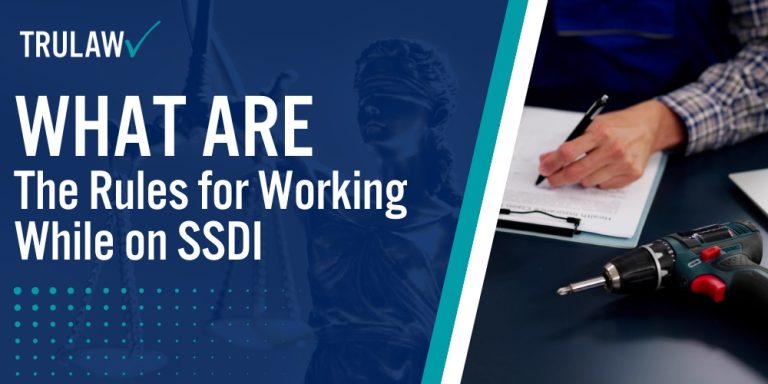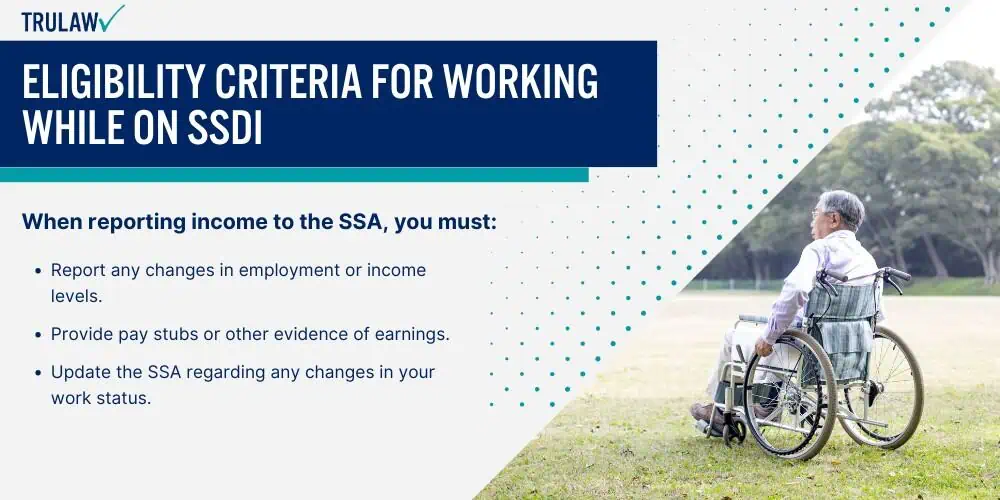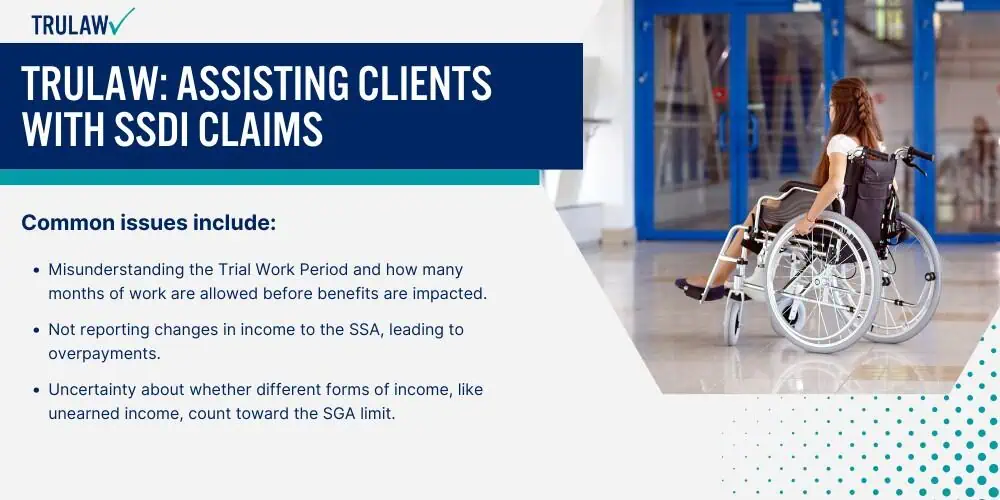Working while receiving SSDI benefits is allowed, but recipients must comply with rules around the Trial Work Period (TWP) and Substantial Gainful Activity (SGA).
These rules determine how long you can work and how much you can earn before your eligibility is affected.

Trial Work Period (TWP) and How It Works
The Trial Work Period (TWP) allows individuals to test their ability to work for up to nine months while continuing to receive full SSDI benefits.
During these months, there is no limit on how much you can earn.
In 2024, any month in which you earn more than $1,110 will count toward your TWP.
Key points about the TWP include:
- The TWP is nine months long but does not have to be consecutive.
- Full SSDI benefits continue regardless of how much is earned during these nine months.
- After completing the TWP, recipients enter the extended period of eligibility (EPE), which lasts 36 months.
During the EPE, your benefits may continue based on your income level and compliance with SSA guidelines.
Substantial Gainful Activity (SGA) Limits for SSDI Recipients
After completing the Trial Work Period, the SSA assesses whether you are earning above the Substantial Gainful Activity (SGA) limit.
In 2024, the SGA limit is $1,550 per month for non-blind individuals and $2,590 for those who are blind.
Important details about SGA include:
- Earnings above the SGA limit after the TWP may result in loss of benefits.
- Countable income, including wages, is considered when determining SGA. However, unearned income such as investments or passive earnings is not included.
- If your earnings fall below the SGA threshold after the TWP, you may continue receiving benefits.





